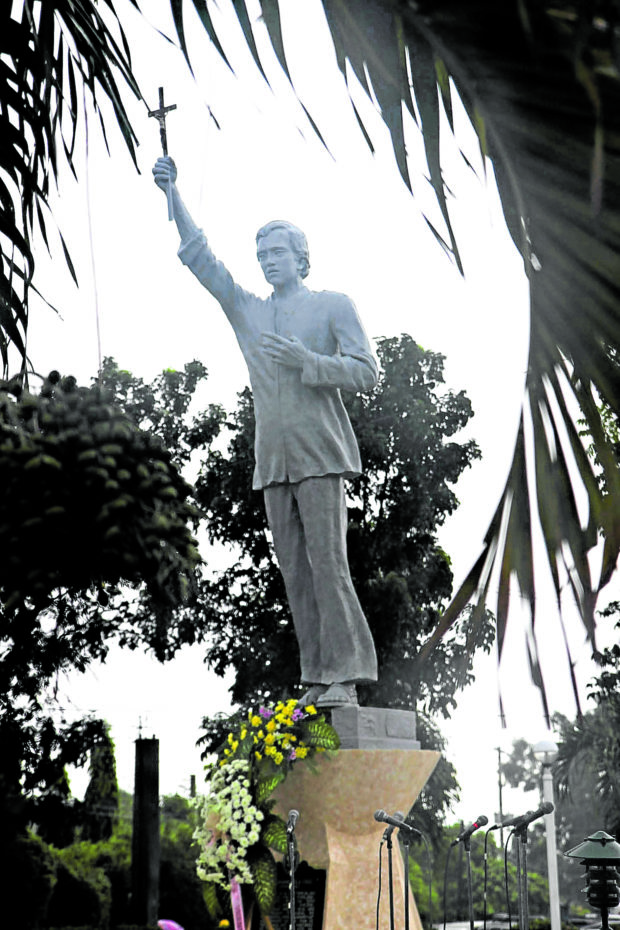
Monument of Apolinario de la Cruz popularly known as “Hermano Pule”, a local hero in Quezon. INQUIRER PHOTO/DELFIN T. MALLARI JR.
LUCENA CITY––Malacañang has declared Nov. 4 a special non-working day in Quezon province to commemorate the heroic death of local hero Apolinario de la Cruz, popularly known as “Hermano Puli.”
“It is but fitting and proper that the people of the province of Quezon be given full opportunity to celebrate and participate in the occasion with appropriate ceremonies, subject to community quarantine, social distancing, and other public health measures,” Executive Secretary Salvador Medialdea said in Proclamation 1233 signed on Oct. 26.
The Quezon public information office posted on Oct. 28 a copy of the order on its Facebook page.
The provincial government is preparing a low-key commemoration for the 206th birth anniversary of the local hero.
Each year, local government, military and police officials, and civic groups conduct floral offerings at the foot of De La Cruz monuments in Tayabas City and Lucban, Quezon.
De La Cruz, born on July 22, 1815, in Lucban town, had wished to become a priest but was discouraged by Spanish friars because he was a native or an “Indio.”
At 17 years old, he founded the “Cofradia de San Jose,” a religious movement that attracted followers in Tayabas; Laguna, Batangas, and Cavite; Tondo in Manila; and some parts of the Bicol region.
Its membership reached around 5,000, according to historical records.
Suspected by the Spanish friars that the movement was subversive, De la Cruz and Cofradia members were forced to go underground.
De la Cruz killed Spanish commander Joaquin Ortega, the first fatality among Spanish officials, in a battle on Oct. 23, 1841.
Ortega’s death infuriated Spain, which sent a large force of Spanish troops to get him dead or alive.
He was captured and killed in Tayabas on Nov. 4, 1841.
To warn his followers, the Spanish soldiers cut his body into pieces, while his head was placed in a cage and hung on a pole on the road leading to Majayjay town in Laguna.
According to historical records, the heroism of De la Cruz inspired three Filipino priests —Mariano Gomez, Jose Burgos, and Jacinto Zamora —whose martyrdom provoked the people to rise against Spanish tyranny.